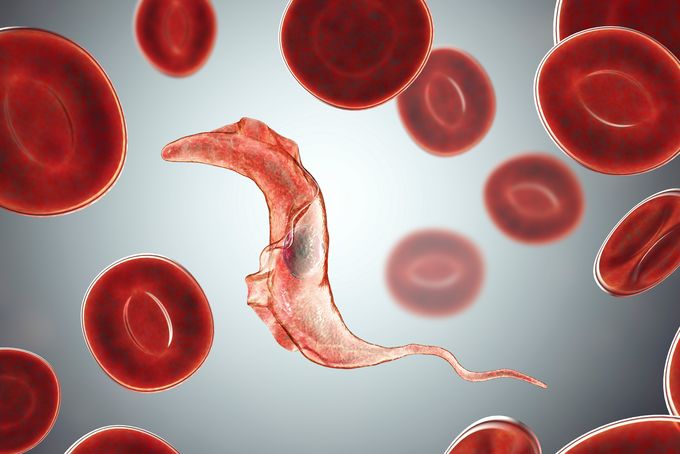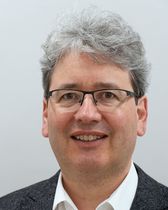New Compounds Show Promise in Transforming Treatment of Parasitic Diseases
30.06.2023
Scientists have identified a new class of compounds called cyanotriazoles that have the potential to effectively inhibit the growth of trypanosomes, the parasites responsible for Chagas disease and African sleeping sickness. The results, published yesterday in the journal Science, demonstrate that the compounds show no toxicity to human cells, raising hopes for the development of new and improved treatments for neglected tropical diseases.

A drug discovery consortium led by Novartis, Swiss TPH and the University of Glasgow has discovered a new class of compounds that effectively inhibit the growth of trypanosomes.
Chagas disease and human African trypanosomiasis (HAT), also known as African sleeping sickness, are significant global health challenges, particularly in Latin America and sub-Saharan Africa where millions of people are at risk. These neglected tropical diseases primarily affect impoverished communities and can be fatal if left untreated. Current treatments for Chagas disease in particular are poorly tolerated, require lengthy regimens, and come with safety concerns, leaving patients vulnerable to severe complications.
A drug discovery consortium led by Novartis, the Swiss Tropical and Public Health Institute (Swiss TPH) and the University of Glasgow has discovered a new class of compounds called cyanotriazoles (CTs) that effectively inhibit the growth of trypanosomes, the parasites responsible for Chagas disease and African sleeping sickness. The results were published on 29 June 2023 in the renowned journal Science.
Scientists screened a range of substances and identified the CT compounds as toxic to trypanosomes, causing irreversible damage to their DNA while being harmless to human cells. This discovery offers hope for the development of new and improved treatments for Chagas disease and other neglected tropical diseases that could make a real difference for patients.
Innovative approaches to drug discovery
In this study, Srinivasa Rao, group leader at Novartis Global Health, and colleagues tested different substances against seven different types of parasites before discovering the class of compounds. The CT compounds showed strong activity against both Trypanosoma brucei, which causes African sleeping sickness, and Trypanosoma cruzi, the cause of Chagas disease.
The CT compounds exhibited remarkable success in curing chronic infections in mice, with just a single oral dose for African sleeping sickness and five oral doses for Chagas disease being sufficient to eliminate the parasites.
“The compounds achieve this by targeting an enzyme called topoisomerase IIα, vital for DNA unwinding and replication,” explained Pascal Mäser, Head of the Parasite Chemotherapy unit at Swiss TPH. “Notably, the cyanotriazoles attach themselves to a specific part of the enzyme found in trypanosomes but not in humans, making them a promising candidate for developing a new type of drug to treat these infections.”
“We anticipate that these results will not only revolutionize the treatment landscape for Chagas disease and other parasitic infections, but also inspire novel strategies in drug discovery and treatment improvements for other infectious diseases,” said Michael Barrett, Professor of Biochemical Parasitology at the University of Glasgow and last author of the publication.
Swiss TPH’s long-standing expertise and drug discovery
For 30 years, Swiss TPH has been one of the leaders in drug discovery for malaria and neglected tropical diseases, such as infections by helminths or trypanosomatids and Buruli Ulcer. Working with a global network of partners, Swiss TPH brings in expertise in both parasitology and clinical research, spanning the lab to the field.
About the study
The study was conducted in partnership with Novartis, University of Glasgow, the Swiss Tropical and Public Health Institute (Swiss TPH), University of Basel, London School of Hygiene and Tropical Medicine (LSHTM), and the University of York. The study was financially supported by the Wellcome Trust.
Contact

Pascal Mäser
Professor, PhD
Head of Unit
+41612848338
pascal.maeser@swisstph.ch
Stay connected
Subscribe to our newsletter and get all the latest research news, project updates, course and event listings from Swiss TPH.